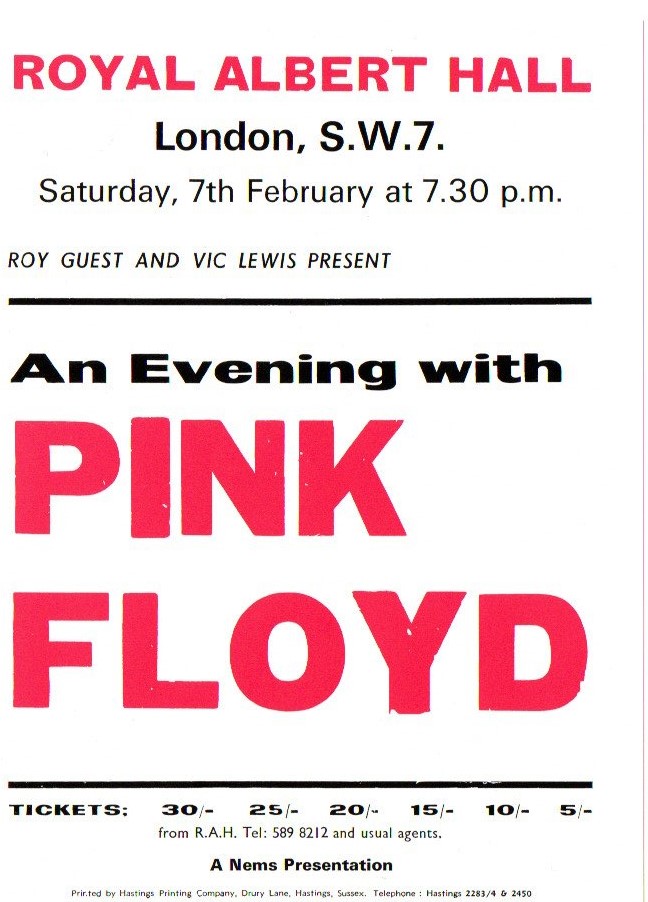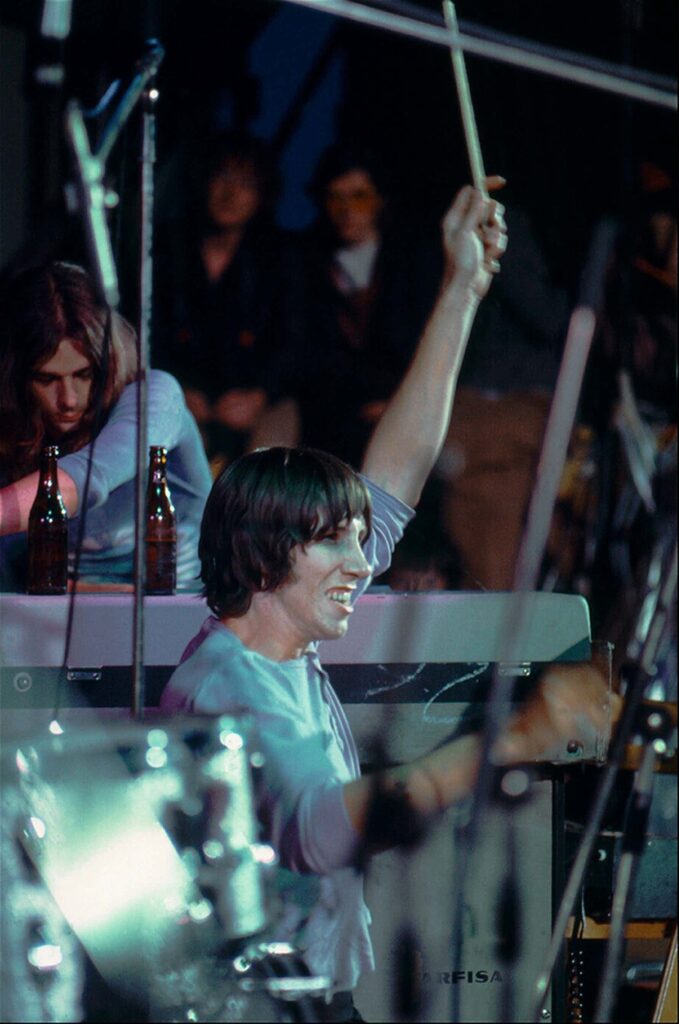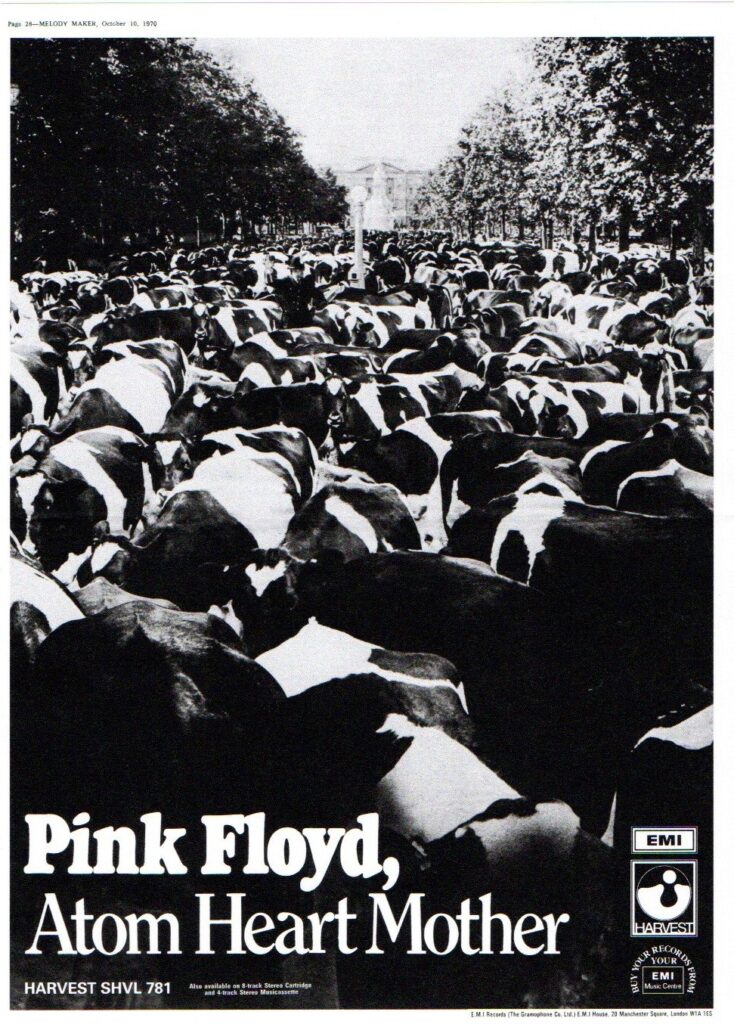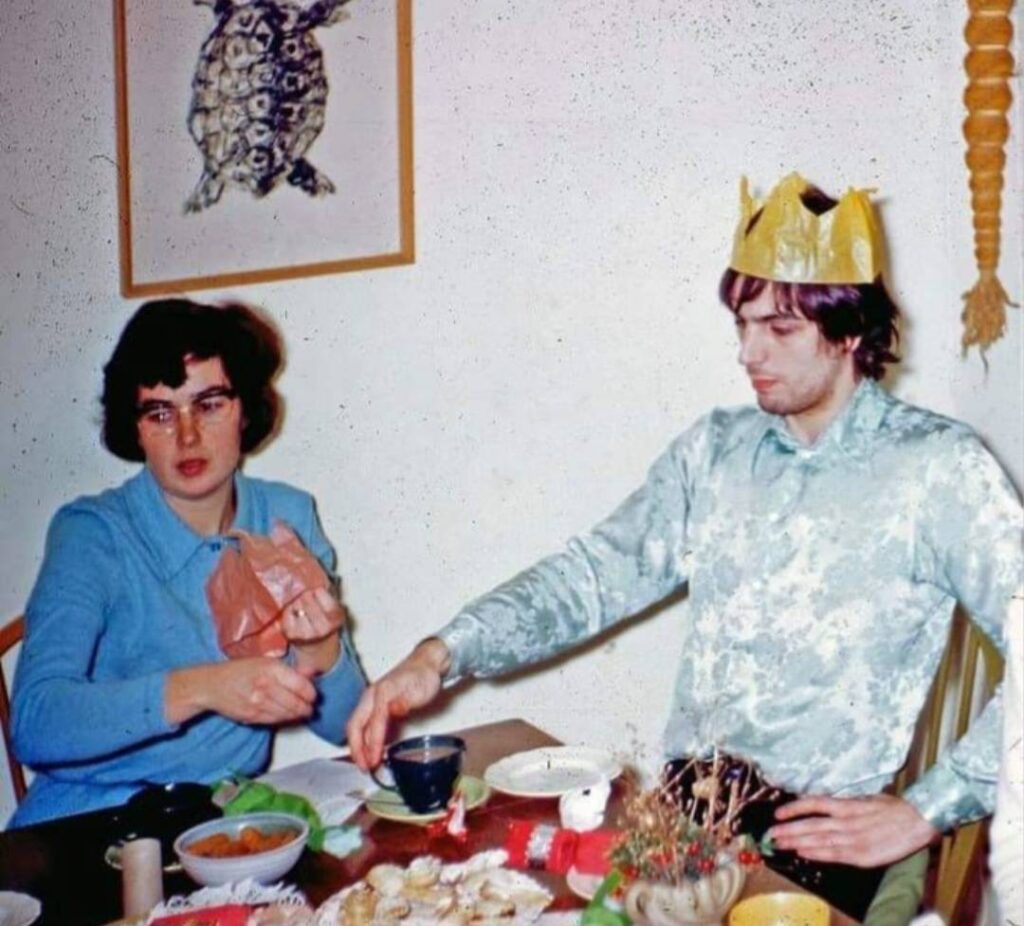Home / Pink Floyd Timeline / Pink Floyd History 1970
Following on from the previous chapter of Pink Floyd 1969, this chapter sees the release of Syd Barrett’s Madcap Laughs debut solo album. It also has Pink Floyd’s Atom Heart Mother.
2nd January 1970
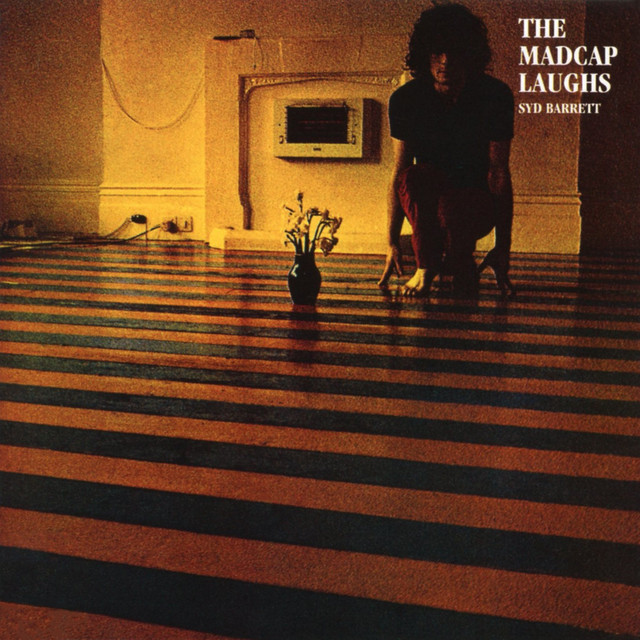
Syd Barrett’s Madcap Laughs Released
“The Madcap Laughs,” released on January 2, 1970, is Syd Barrett’s debut solo album post his departure from Pink Floyd. Characterized by Barrett’s distinct song writing and performance, the album’s production was a complex process, marked by his erratic behaviour and mental health struggles. David Gilmour and Roger Waters of Pink Floyd, along with initial producers Peter Jenner and Malcolm Jones, played crucial roles in its creation, navigating the challenges posed by Barrett’s unpredictability. The album, with its whimsical title and dishevelled cover photo reflecting Barrett’s life at the time, stands as a poignant reflection of his artistic genius and personal trials.
3rd January 1970
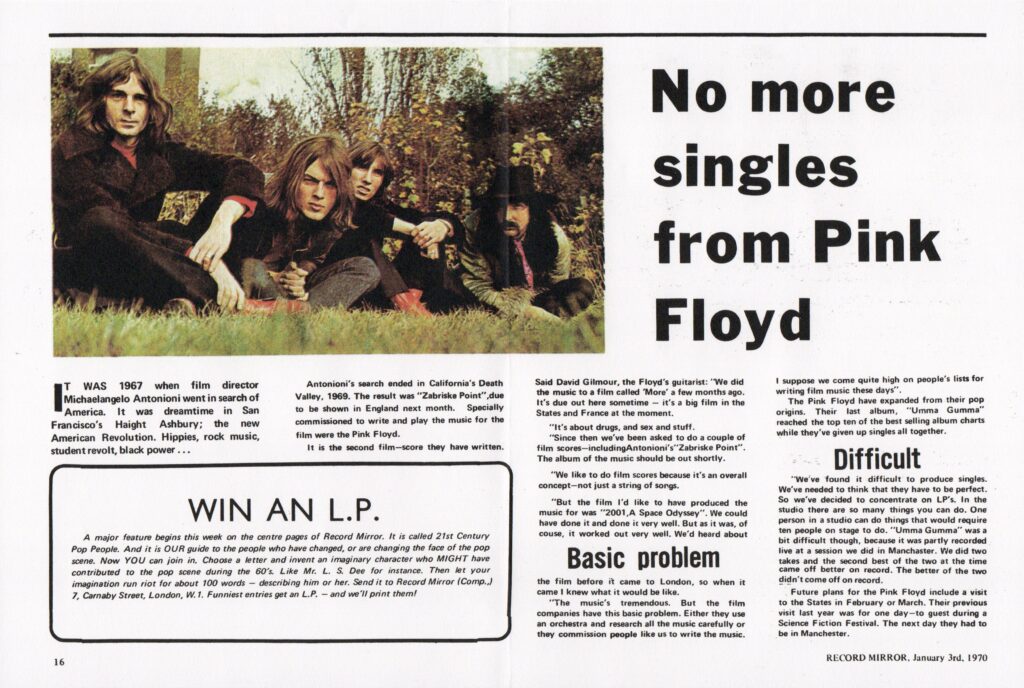
No More Singles but film concepts in the form of an album are in
Record Mirror article about Pink Floyd and their work on film scores for More and Zabriskie Point. David Gilmour pointed out that they prefer film as it allows them to focus on the whole concept of the film, rather than trying to perfect one single by itself.
This is an important moment in their history as they are pivoting towards the concept album, a movie of their own but in the form of a music album, and utilising visuals on stage.
This article was reproduced as memorabilia in the rather excellent The Early Years 1965-1972 by Pink Floyd boxset.
10th January 1970
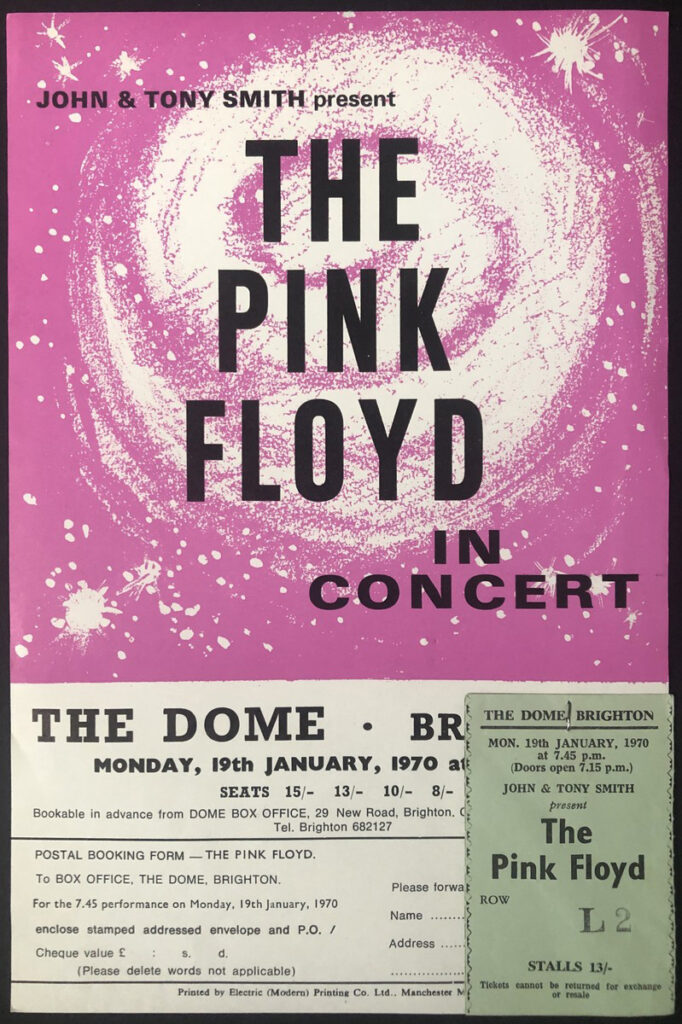
Pink Floyd 1970 Tour Commences
The Pink Floyd 1970/71 tour begins. They play 16 dates on this UK leg but hop over to France for a couple of shows. The set contained songs in development. They would later become part of Atom Heart Mother released later in the year.
26th February 1970
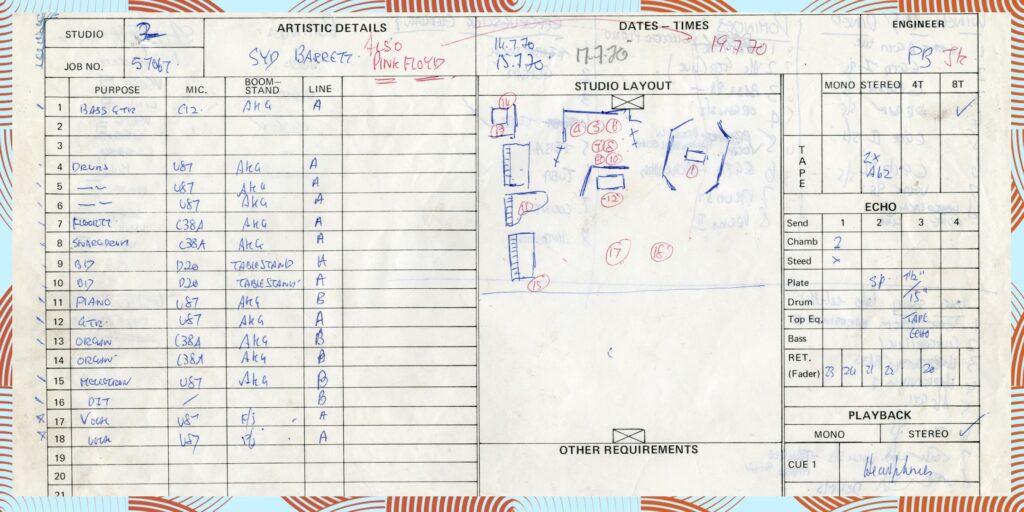
Recording starts on Syd Barrett’s solo album Barrett
It took 15 recording sessions at Abbey Road to record Syd Barrett’s second and final solo album Barrett. Produced by David Gilmour and Richard wright, up until the final session on 21st July 1970, it was a more structured effort compared to The Madcap Laughs.
The recording sessions were interrupted by Pink Floyd having to work on their own album Atom Heart Mother. Syd would turn up at the studio and spy on the band seeing what they were up to. He would turn up at the Wish You Were Here sessions years later too.
Pic: 1970 July 17th Syd Barrett Abbey Road Studios Recording Sheet
Links – Syd Barrett Recording Session Sheets,
1st March 1970
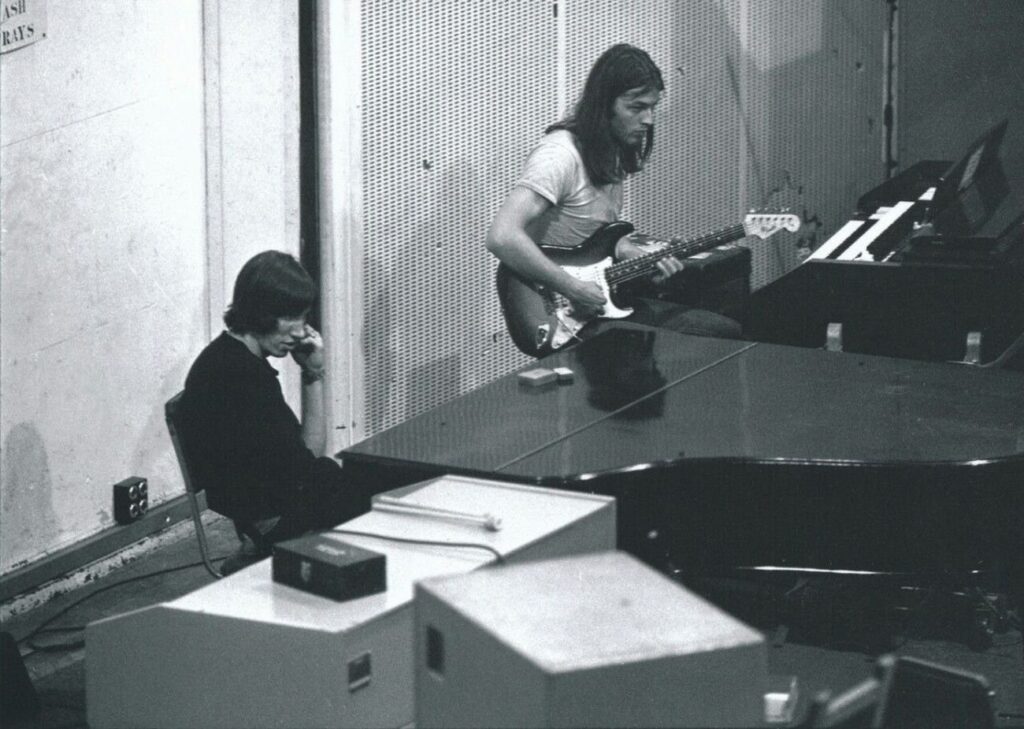
Pink Floyd at Abbey Road Studios recording Atom Heart Mother
Pink Floyd begin a week long recording session at London’s Abbey Road Studios. The picture is from October 1970 later in the year. They are recording their Atom Heart Mother studio album. The songs from the album had been tested on the road and were developed further in the studio.
The development and recording of Pink Floyd’s “Atom Heart Mother” suite is a fascinating insight into the band’s creative process and their transition into more complex, experimental compositions.
Side One
Early Stages: The title track of “Atom Heart Mother” was shaped by various instrumental figures composed during rehearsals. David Gilmour referred to the chord progression of the main theme as “Theme from an Imaginary Western.” The earliest documented live performance of this piece was on January 17, 1970, at Hull University.
Recording Challenges: Recording began at EMI Studios with new equipment, including an eight-track tape and a new mixing console. The process was challenging, notably because the band couldn’t splice the tape to edit sections together. Roger Waters and Nick Mason had to play their parts for the entire duration of the 23-minute piece in one go.
Ron Geesin’s Involvement: By March 1970, Pink Floyd felt the track needed something more to focus it. Enter Ron Geesin, an avant-garde composer introduced to the band by the Rolling Stones’ tour manager. Geesin was tasked with composing an orchestral arrangement over the band’s recorded backing tracks.
Composition and Arrangement: Geesin faced challenges, including a lack of musical notation from the band and skepticism from session musicians during recording. He worked with David Gilmour and Richard Wright, particularly on the middle section involving the choir.
Title Evolution: Initially named “The Amazing Pudding,” the track’s title changed after a BBC Radio 1 broadcast required a name for the announcement. The title “Atom Heart Mother” was inspired by a newspaper article about a woman fitted with a plutonium-powered pacemaker.
Album Structure and Influence: The “Atom Heart Mother” suite, occupying the entire first side of the album, is divided into six named parts. It represented a progression from Pink Floyd’s earlier instrumental works like “A Saucerful of Secrets.” The suite featured orchestral arrangements, including a full brass section and a choir, which played a more prominent role than the rock band, reversing the typical 1960s pop music trend.
Side Two
Side two of Pink Floyd’s “Atom Heart Mother” album features individual contributions from each of the band’s three main songwriters, followed by a musical suite primarily conceived by Nick Mason and credited to the whole group. The side opens with three five-minute songs:
Roger Waters’ “If” – A folk ballad where Waters plays acoustic guitar. It was not often played live by Pink Floyd but was included in Waters’ solo shows later on.
Richard Wright’s “Summer ’68” – This track features the use of brass and was issued as a single in Japan in 1971. It’s about Wright’s encounter with a groupie and was never played live.
David Gilmour’s “Fat Old Sun” – A folk-influenced tune which became a regular part of the band’s live repertoire in 1970-71 and a staple in Gilmour’s solo set from 2006.
The final track, “Alan’s Psychedelic Breakfast,” is an experimental piece divided into three segments, tied together with sound effects and dialogue of roadie Alan Styles preparing and eating breakfast. The piece combines these elements with musical parts recorded at EMI. The original LP ends with the sound of a tap, creating an infinite loop effect
11th March 1970
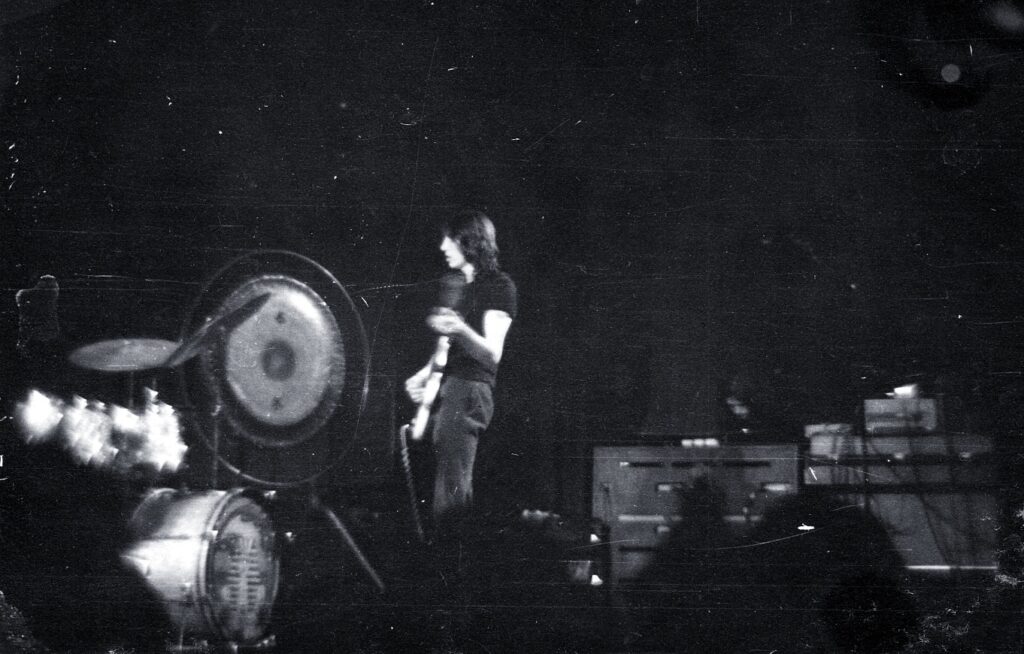
Pink Floyd head to European Tour 1970
Pink Floyd took Atom Heart Mother on tour around Europe for a handful of gigs starting at Stadthalle, Offenbach, West Germany, and ended on 21st March at Tivolis Koncertsal in Copenhagen, Denmark.
See photos : 1970-03-19 Pink Floyd at Konserthuset, Stockholm, Sweden
1970-03-11 : Stadthalle, Offenbach, Germany
1970-03-12 : Hamburg University (Auditorium Maximum), Hamburg, Germany
1970-03-13 : Audimax der Technische University, Berlin, Germany
1970-03-13 : Audimax der Technische University, Berlin, Germany
1970-03-14 : Meistersinger Halle, Nuremberg, Germany
1970-03-15 : Niedersachsenhalle, Hannover, Germany
1970-03-19 : Konserthuset, Stockholm, Sweden
1970-03-20 : Akademiska Foreningens Stora Sal, Lund, Sweden
1970-03-21 : Tivolis Koncertsal, Copenhagen, Denmark
13th March 1970
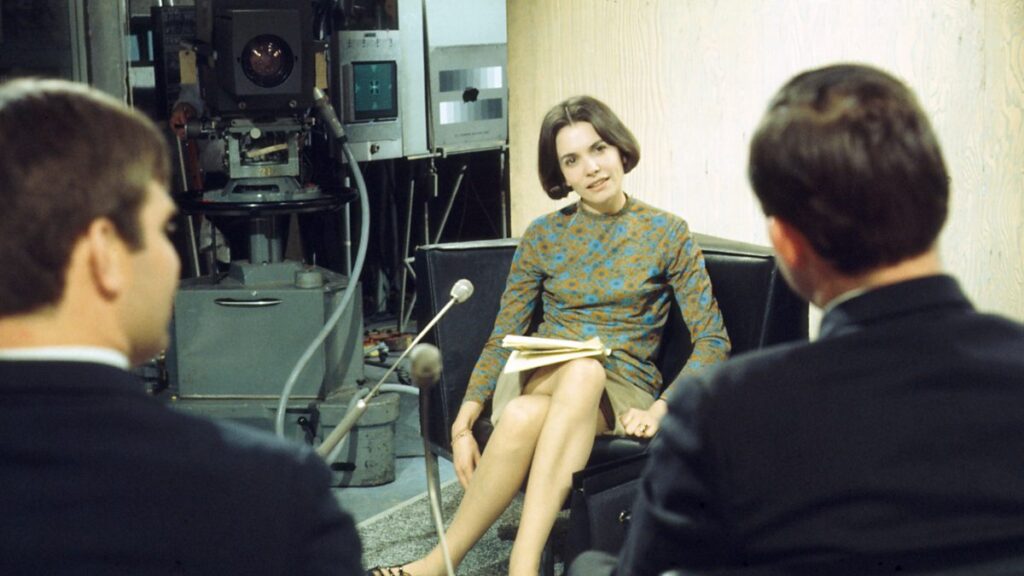
BBC2 ‘Late Night Line-Up’ – music from ‘Zabriskie Point’
Pink Floyd recorded music from BBC2 ‘Late Night Line-Up’. The original show was called Line Up and was a ten minute “advertisement” as the first programme on newly launched BBC2 in 1968. It was later developed into Late Night Line Up moving past the 9pm watershed of censorship! The Pink Floyd played music from ‘Zabriskie Point’ and the recording is considered lost. Much like lots of other material the BBC archive thought to record over, delete and destroy! Lots was broadcast live and never recorded at all!
Pic: not Pink Floyd, you can watch other episodes online
18th March 1970
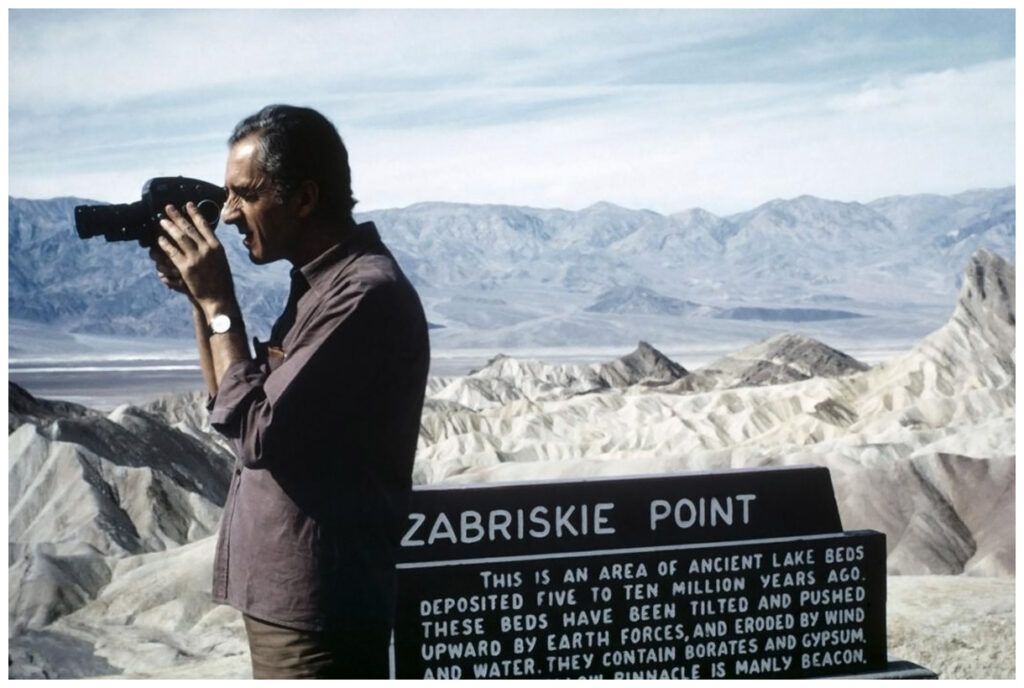
Zabriskie Point premiered in New York feat. Pink Floyd Soundtrack Contributions
“Zabriskie Point,” directed by Michelangelo Antonioni, premiered in New York in 1970, and is often remembered as a quintessential counter-culture movie of its era. This film, set in the United States during the late 1960s, captures the essence of the social and political upheaval of the time. Antonioni, an Italian director renowned for his modernist approach, used this film to explore themes of rebellion, disillusionment, and the search for meaning in a rapidly changing world.
The movie follows the story of two young protagonists, a student radical and a young woman, both of whom are disillusioned with the American establishment. Their journey takes them to Zabriskie Point in Death Valley, which serves as a symbolic backdrop for the film’s exploration of themes like consumerism, violence, and sexual liberation. The film is particularly famous for its climactic explosion scene, where a lavish house in the desert is blown up, symbolizing the rejection of materialistic values.
Despite its bold visual style and thematic ambition, “Zabriskie Point” was met with mixed reviews and was not an immediate commercial success. Critics were divided on its narrative and its portrayal of American culture. However, over the years, the film has gained a cult following and is appreciated for its cinematography, its daring narrative structure, and its reflection of the counter-culture movement. The soundtrack, featuring artists like Pink Floyd and the Grateful Dead, further cemented its status as an iconic piece of 60s counterculture cinema.
Irritatingly, many of the Floyd’s songs were dropped from the soundtrack including The Riot Scene (AKA The Violent Sequence) written by Pink Floyd keyboardist Richard Wright. It was unreleased and would later be redeveloped into Us & Them on Dark Side of the Moon.
9th April 1970
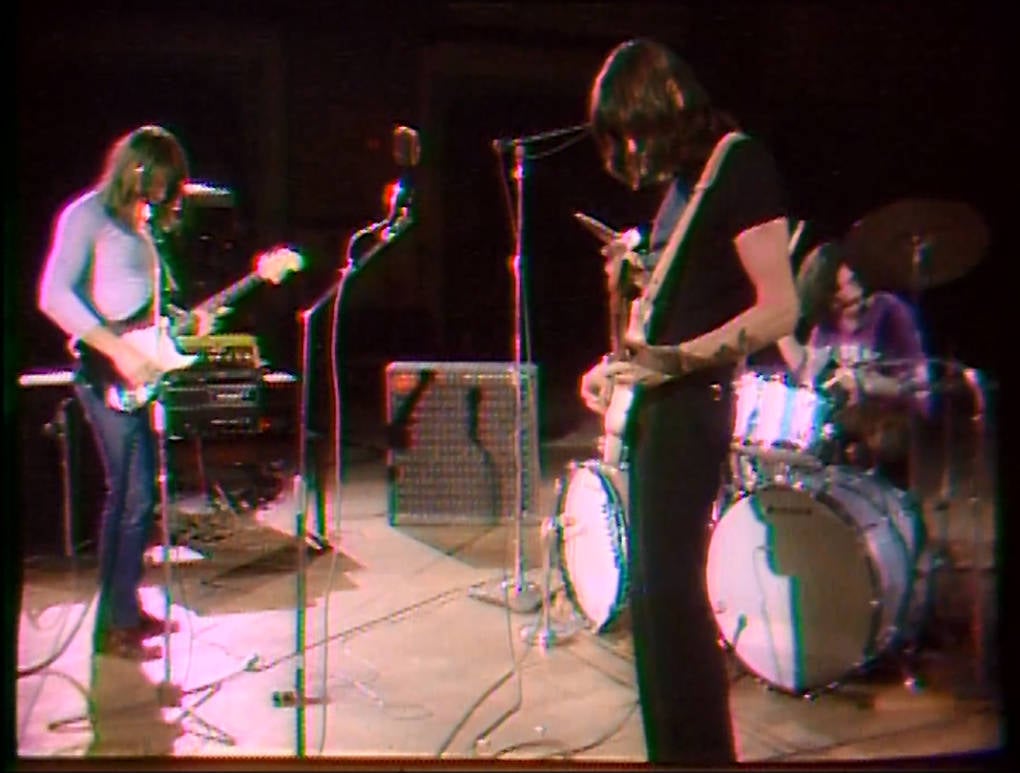
Pink Floyd Start USA Tour 1970 including KQED Hour Long Concert Recording
Pink Floyd set off for the United States one more time. Whilst there, they recorded an hour long TV Programme at The Filmore Auditorium for KQED on 30th April 1970. It is included on the excellent box set The Early Years 1965-1972.
Links – Watch unseen KQED Video, see Tour Dates from the 1970 USA Leg, watch KQED An Hour With Pink Floyd
29 May 1970
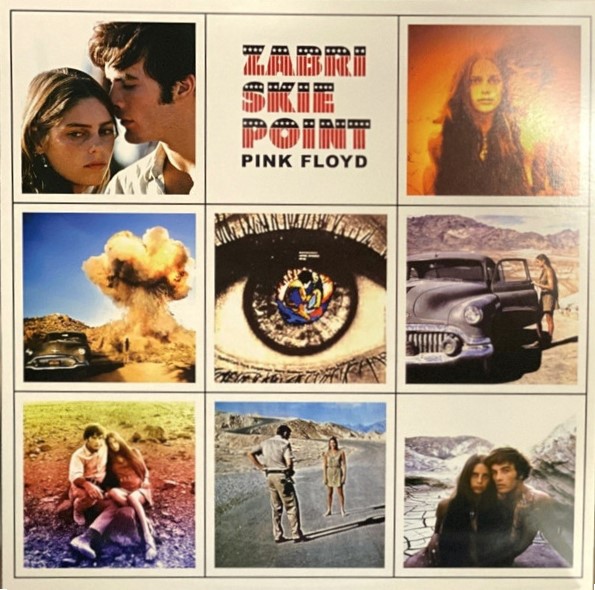
Zabriskie Point Soundtrack Released
The soundtrack to the film Zabriskie Point was released in the UK. It completely failed to chart so was not a commercial success. This may have bothered the band a fair bit given the effort they had put into it. No more soundtracks after this point, but they did go on to paint their own soundscapes and explore various themes in their concept albums.
The track listing included three previously unreleased Pink Floyd songs: Come In Number 51 Your Time Is Up; Crumbling Land; and Heart Beat Pig Meat.
6th June 1970
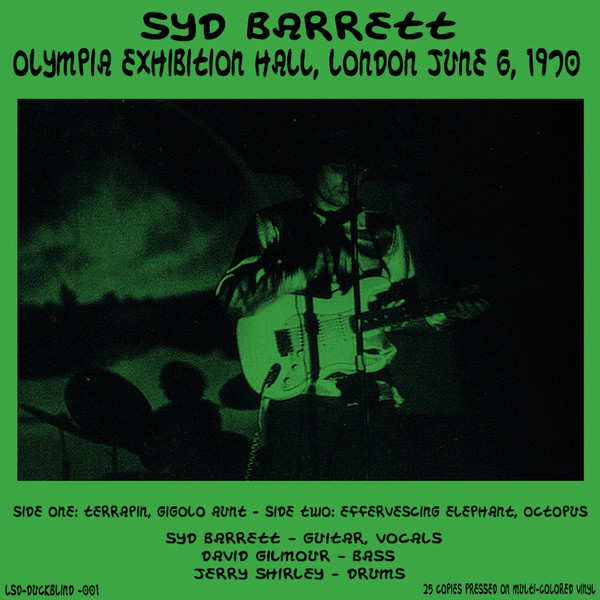
Syd Barrett’s only Solo Concert Performed at the Olympia Exhibition Hall, London
Syd Barrett performed as a solo artist at the Olympia Exhibition Hall, London, England as part of the 70s Extravaganza Music and Fashion Festival. The band performed ‘Terrapin’, ‘Gigolo Aunt’, ‘Effervescing Elephant’ and ‘Octopus’. The band consisted of Syd Barrett on guitar and vocals, David Gilmour on Bass and Jerry Shirley on Drums.
Before the gig, Syd spoke to Sounds Magazine about playing live, “I used to enjoy it, it was a gas. But so’s doing nothing. It’s art school laziness, really.”
Rob Chapman in his Syd Barrett A Very Irregular Head book said that, during the song Octopus, Syd Barrett chose to leave the stage and go home. However the bootleg of the show clearly demonstrates him singing right up until the very end of the song.
This was his first and last solo concert, although he would later collaborate with Sparks in 1972 and The Last Minute Put Together Boogie Band.
You can listen to the performance online, Concert information Olympia Exhibition Hall (The Grand Hall), London, England, or Discuss on the Forum
27th June 1970
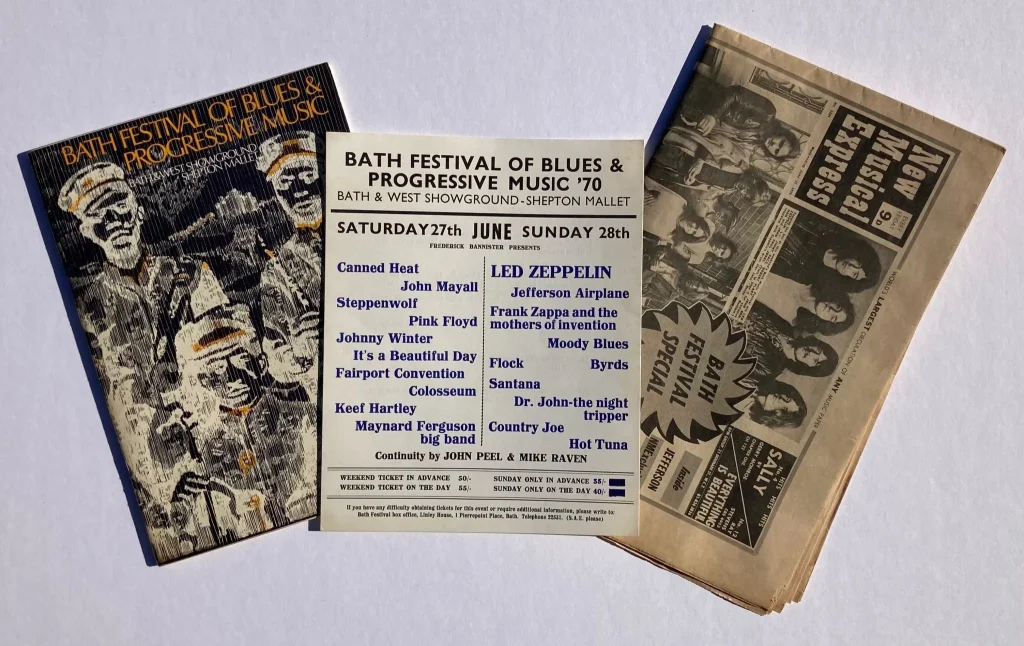
Pink Floyd Headline ‘Bath Festival Of Blues & Progressive Music’ with Atom Heart Mother Performance
At the Bath Festival of Blues and Progressive Music in 1970, Pink Floyd premiered their new suite “Atom Heart Mother,” then known as “The Amazing Pudding.” Their performance, which began at 3 am due to major delays, featured a complete brass band and choir. Along with “Atom Heart Mother,” the band played tracks from “More” and “A Saucerful of Secrets,” as well as “Careful with That Axe, Eugene.” This concert marked the first public appearance of David Gilmour’s 1969 Fender Stratocaster, which later became iconic in his performances
Links: Watch Live Performance from the Concert, view Programme for Bath Festival of Blues,
28th June 1970
18th July 1970
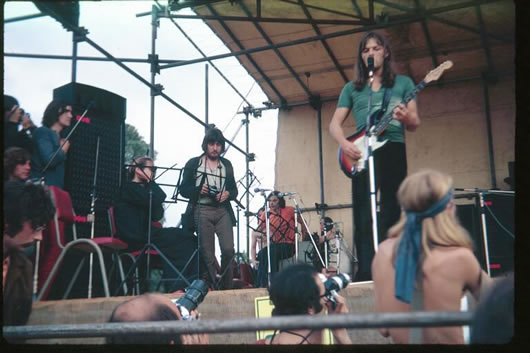
Pink Floyd headlined ‘Blackhill’s Garden Party’ in front of 120,000!
This was a really high exposure concert for Pink Floyd playing in front of 120,000 people controlled by Hells Angels for security! Pink Floyd headlined the event, a free concert put on by the band’s former management Peter Jenner and Andrew King who went off with Syd Barrett when he left the Floyd.
The band were joined by The Philip Jones Brass Ensemble and The John Aldiss Choir; tracks played included Atom Heart Mother and Careful With That Axe, Eugene.
Links – Watch the performance, see lots of Photos from the event, view a definitive page of analysis and memories from the concert
26th July 1970
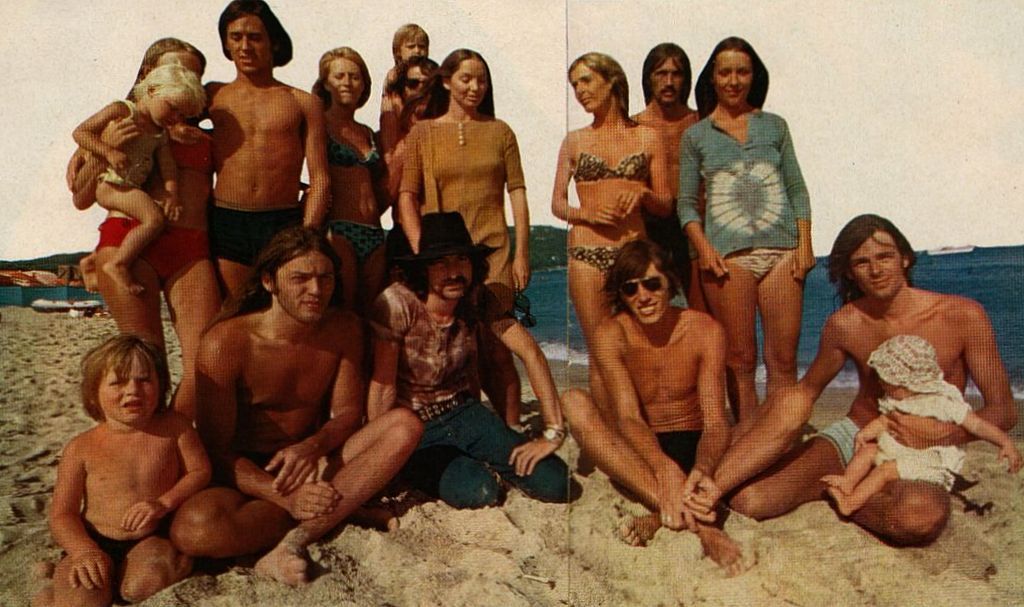
Pink Floyd and Crew Holiday in St Tropez
Pink Floyd were supposed to be performing at a number of festivals in France but they were cancelled due to civil unrest in the country. Instead, the band and members of the crew enjoyed a nice trip down to St Tropez for a much earned break.
26th September 1970
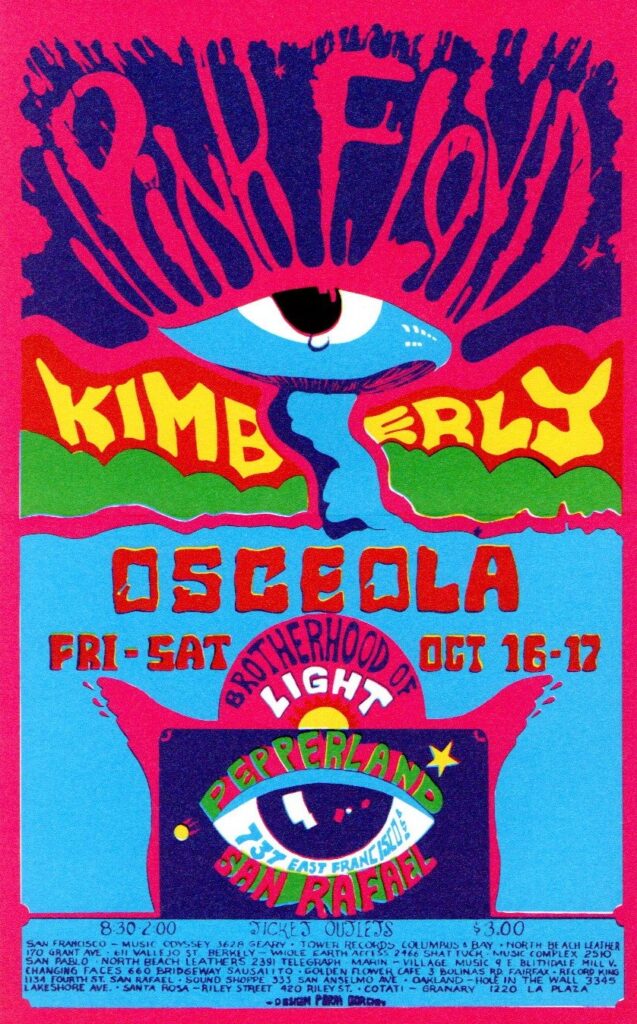
Commencement of USA Tour
Pink Floyd did another North American tour calling at lots of places. They started out at at the Electric Factory in Philadelphia, and crossed the country all the way over to Pepperland Auditorium, San Rafael, California, USA on the 16th and 17th October 1970. They previously toured America in April/May 1970 recording an hour long special for KQED.
Picture: 1970 October 16/17 Pink Floyd at Pepperland Auditorium, San Rafael, California, USA poster
2nd October 1970
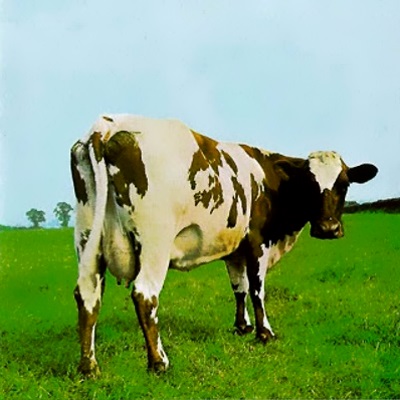
Atom Heart Mother released in the UK
Pink Floyd’s fourth studio album Atom Heart Mother was released in the UK on 2nd October 1970. It featured a musical suite called Atom Heart Mother featuring musical pieces a. Father’s Shout; b. Breast Milky; c. Mother Fore; d. Funky Dung; e. Mind Your Throats, Please; f. Remergence. Each band member contributed a song for the second side of the album. The songs were If; Summer ’68; Fat Old Sun; Alan’s Psychedelic Breakfast.
Random trivia about Atom Heart Mother.
The cow was called Lulubelle III
The album was co-produced with Ron Geesin who Roger Waters worked with on Music from the Body.
The album was originally called “The Amazing Pudding” whilst it was being developed on the road.
Interestingly, the band members, particularly Roger Waters and David Gilmour, later expressed dissatisfaction with the album. They felt it was a good experiment but not a great success in their musical journey. The album is noted for its use of unconventional recording techniques. For example, the sound of a ringing cash register, used in the track “Alan’s Psychedelic Breakfast,” was a creative addition that predated the more famous use of a similar sound in “Money” from “The Dark Side of the Moon.”.
It was Pink Floyd’s first number one album!
16/17 October 1970
6 November 1970
Pink Floyd back in UK for more Touring
28th November 1970
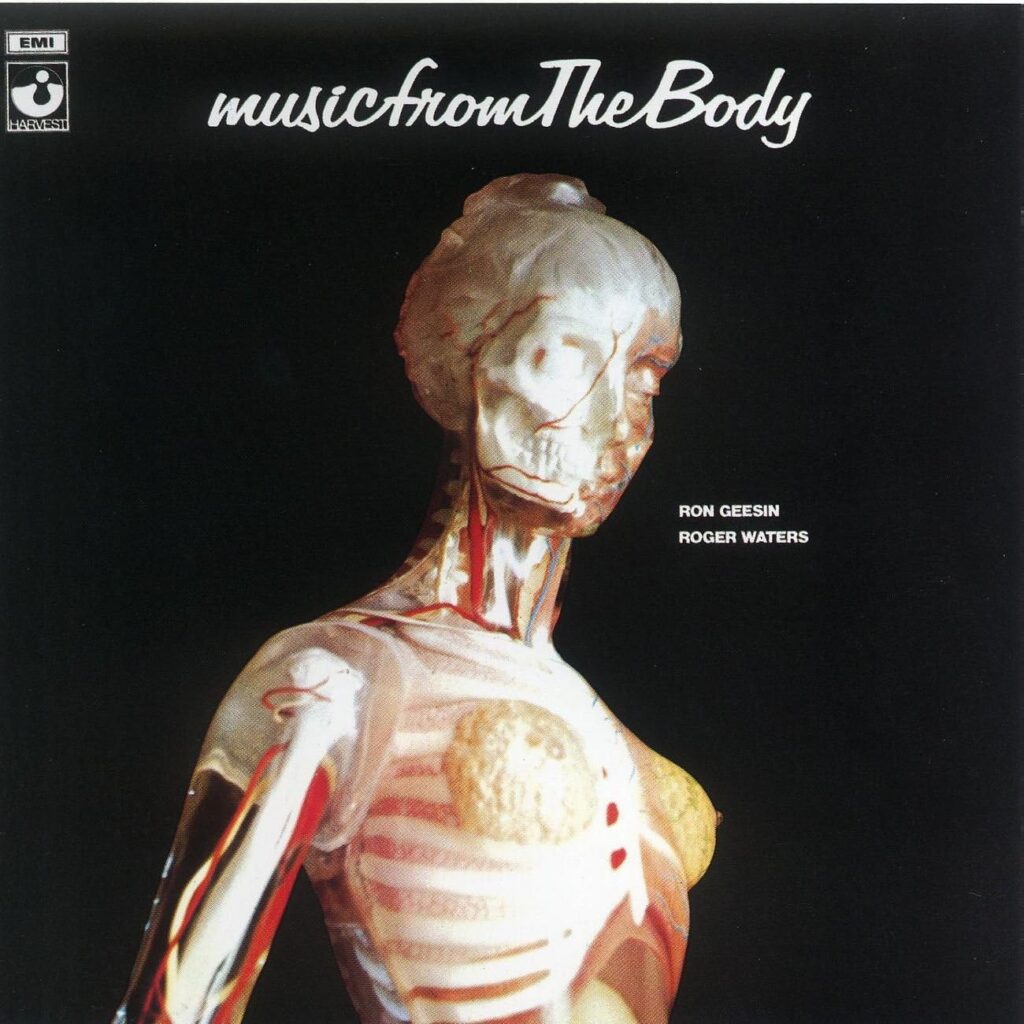
Music From the Body Soundtrack Released
A Collaboration between Ron Geesin and Roger Waters, Music from The Body is the soundtrack album to Roy Battersby’s 1970 documentary film The Body. The docufilm is about human biology and is narrated by Vanessa Redgrave and Frank Finlay.
Ron Geesin also worked on Atom Heart Mother with Pink Floyd, with Ron having a writing credit on Atom Heart Mother title track. The rest of Pink Floyd got involved with the project recording the final song on the album Give Birth to a Smile. Only Roger Waters was credited on the album though. The song Breathe from this album features the same lyric from Dark Side of the Moon “Breathe in the air… “.
Roger Waters would not release another solo album until his 1984 The Pros and Cons of Hitchhiking
Some of the songs are really nice although not consistently so across the album. Take a listen.
6th November 1970
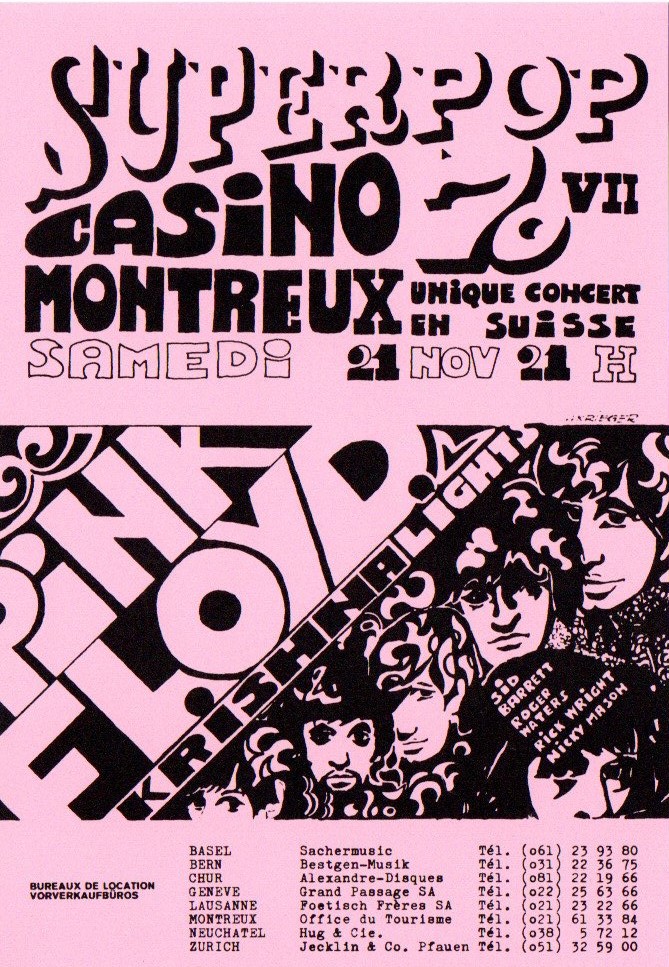
Pink Floyd European Tour Leg 3
Pink Floyd did a lot of shorter legs alternating between UK, Europe and North America around this time period. They never sat still! This particular tour leg started off in Amsterdam on 6th November at Concertgebouw and finished in Paris, France at ORTF TV Studios.
Picture: 1970 November 21st Pink Floyd at Superpop Casino Montreux poster
14th November 1970
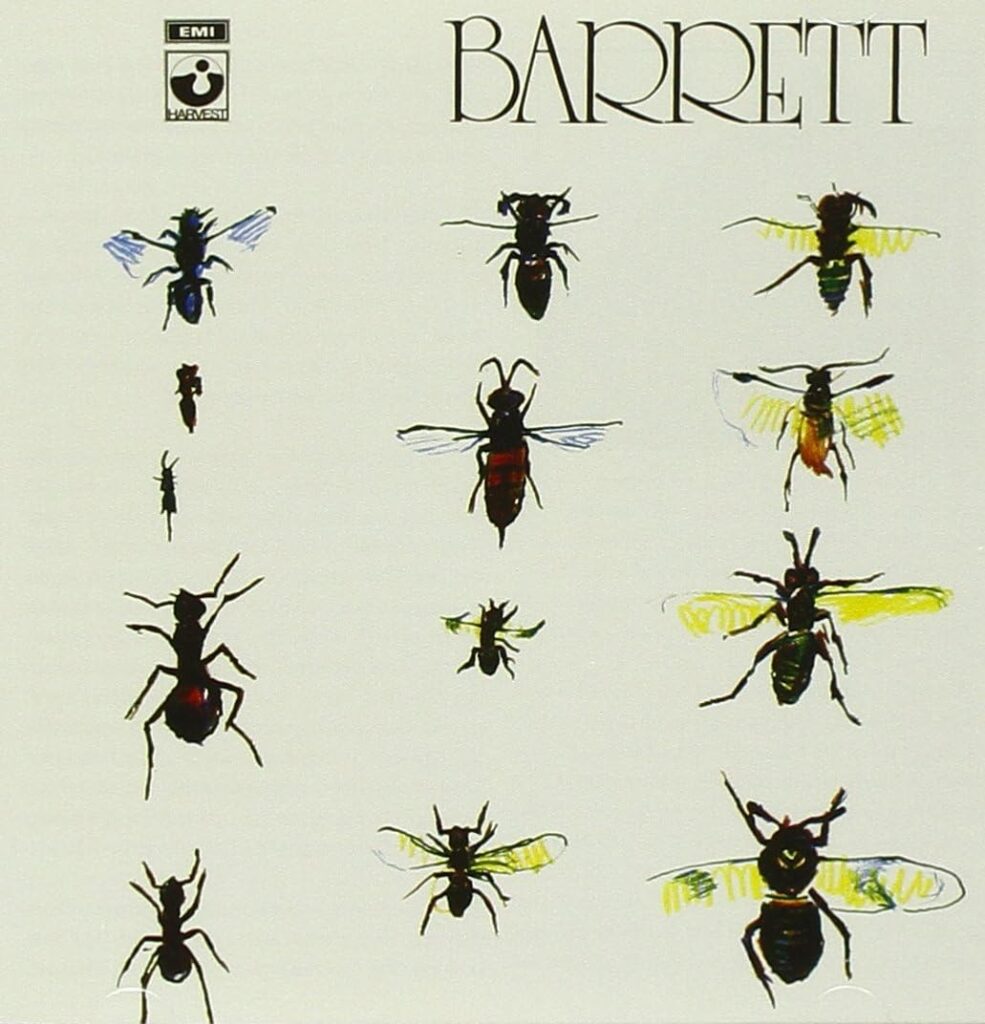
Syd Barrett’s solo album Barrett released
Having left Pink Floyd back in April 1968, having been replaced by childhood friend David Gilmour in January 1968, Syd Barrett’s second solo album was released.
The album was more structured than his first effort, The Madcap Laughs. This was probably because it was produced by David Gilmour and Richard Wright, who probably laid down the backing tracks for Syd to interact with.
The album failed to chart at the time, although it was well though of by critics owing to its artistic value. The album’s influence and appreciation would grow over the decades fanned by the misconceptions about Syd being a mythical figure.
Track listing: Baby Lemonade; Love Song; Dominoes; It Is Obvious; Rats; Maisie; Gigolo Aunt; Waving My Arms In The Air; I Never Lied To You; Wined And Dined; Wolfpack; Effervescing Elephant
11th December 1970
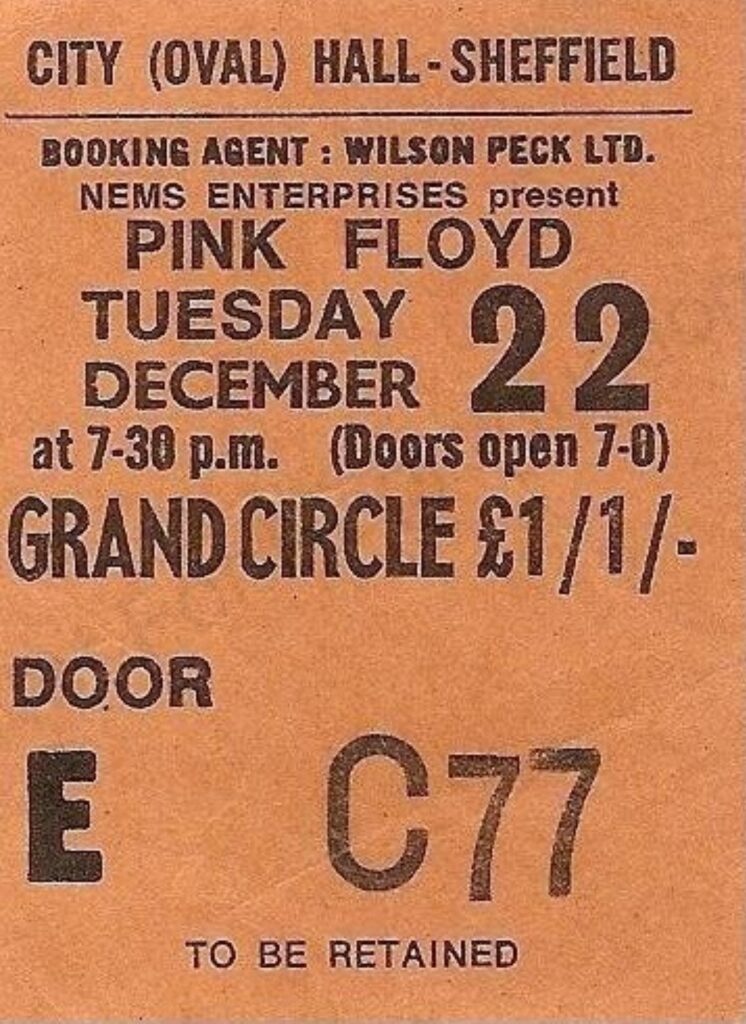
A Brief UK Tour to Close the Year
Pink Floyd finished their very busy and eventful year with a brief six-date UK tour. They started down in Brighton at the Regent Theatre concert hall and ended on 22 December at Sheffield City Hall.
Have a listen to a bootleg recording of their final 1970 concert to hear the typical set list and style.
UK Tour Leg 2
1970-12-11 : The Big Apple, Brighton, England
1970-12-12 : Roundhouse, London, England
1970-12-18 : Town Hall (Birmingham), Birmingham, England
1970-12-20 : Colston Hall, Bristol, England
1970-12-21 : Free Trade Hall (Manchester), Manchester, England
1970-12-22 : City Hall (Sheffield), Sheffield, England
View all Pink Floyd Historical Tours and their Pink Floyd 1970/71 Tour Dates in particular
In 1970, Pink Floyd continued to evolve and grow, marking another significant year in their history. Here’s a comprehensive overview of their activities and developments during that year:
Early 1970: Solidifying Their Experimental Sound
- Post-‘Ummagumma’ Era: Following the experimental nature of ‘Ummagumma’ released in late 1969, the band continued to explore new musical territories.
- Live Performances: Their live shows were becoming increasingly avant-garde, featuring long, improvised jams.
Key Album Release: ‘Atom Heart Mother’
- Release and Reception: In October 1970, Pink Floyd released ‘Atom Heart Mother’. The album featured a mix of orchestral and band music, a departure from their earlier style.
- Title Track: The album’s title track, ‘Atom Heart Mother Suite’, was a side-long composition, collaboratively written with Ron Geesin, featuring a full brass section and choir.
- Success: ‘Atom Heart Mother’ became their first album to hit number one in the UK, reflecting their growing popularity.
Touring and Live Performances
- Extensive Touring: The band toured extensively in 1970, including shows in Europe and the United States.
- Live Innovation: Their concerts were known for pioneering use of quadraphonic sound systems and elaborate light shows, setting a standard for live rock performances.
Musical Evolution and Experimentation
- Diverse Styles: Throughout 1970, Pink Floyd experimented with various musical styles, from pastoral acoustic pieces to hard rock and orchestral works.
- Collaborative Approach: The band’s collaborative approach to song writing and composition became more pronounced.
Internal Dynamics and Creativity
- Emerging Leadership: Roger Waters and David Gilmour continued to grow as the band’s primary songwriters and vocalists.
- Creative Tensions: While the band was collaborating well musically, there were early signs of the creative tensions that would later become more pronounced.
Cultural Impact and Legacy
- Growing Influence: Pink Floyd’s influence on the progressive rock genre was becoming more evident.
- Fanbase Expansion: Their fanbase continued to grow, attracted by their unique sound and live performance style.
Setting the Stage for Future Success
- Building Towards Iconic Works: The experimentation and musical exploration in 1970 laid the groundwork for their subsequent, more focused works like ‘Meddle’ and ‘The Dark Side of the Moon’.
- End of 1970: The band ended the year as a major force in the progressive rock scene, poised for greater success in the coming decade.
1970 was a pivotal year for Pink Floyd, characterized by musical experimentation, increased popularity, and the beginnings of a shift towards the style that would define their most iconic albums.

